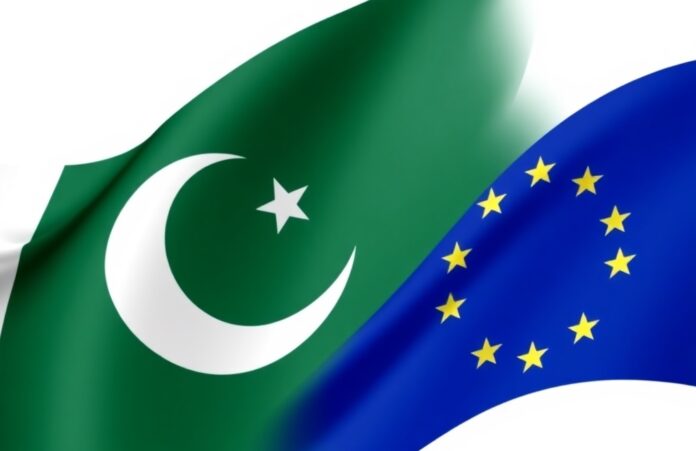ISLAMABAD: Pakistan has called on the European Union (EU) to ensure a fair and mutually beneficial trade partnership under the GSP+ framework, urging resolution of two key issues; the withdrawal of duty concessions on Pakistan’s ethanol exports and the ongoing dispute over the Geographical Indication (GI) of Basmati rice in the European market.
As per details the concerns were raised by Federal Minister for Commerce, Jam Kamal Khan, during a meeting with a high-level delegation of the European Parliament’s Committee on Development, led by Mr. Lukas Mandl of Austria. The delegation, which included parliamentarians from Poland, Spain, Czechia, and Germany, was accompanied by EU Ambassador to Pakistan H.E. Raimundas Karoblis.
The meeting reaffirmed Pakistan’s strong partnership with the EU under the Generalised Scheme of Preferences Plus (GSP+), which has significantly supported Pakistan’s exports, sustainable development, and human rights progress.
Minister Jam Kamal Khan briefed the delegation on Pakistan’s reforms and social development achievements, including recent human rights legislation, child protection laws, and institutional strengthening efforts that contributed to Pakistan’s re-election to the UN Human Rights Council (2026–2028) and the “A status” accreditation of its National Commission for Human Rights (NCHR).
However, the Commerce Minister drew attention to two trade matters of urgent concern:
“The withdrawal of duty concessions on ethanol exports has adversely impacted Pakistan’s rural communities and small farmers, who rely on this vital export commodity,” he said, urging the EU to revisit its policy in light of its developmental goals.
“Similarly, Pakistan expects a fair and impartial decision on the Geographical Indication (GI) registration of Basmati rice in Europe — a heritage product that belongs jointly to Pakistan and India under historical and cultural roots,” he emphasized.
Pakistan and India have long been in dispute over the GI tag for Basmati rice in the European Union. India’s 2020 application to claim exclusive GI protection for Basmati was formally opposed by Pakistan, which argued that the aromatic long-grain variety is grown and culturally embedded across the Punjab region on both sides of the border.
The case remains under review at the EU Intellectual Property Office (EUIPO), with Pakistan seeking recognition of its rightful share in the global identity of Basmati.
Minister Jam Kamal stressed that both issues, ethanol trade and Basmati GI, are critical for Pakistan’s rural economy, especially following the devastating floods that disrupted agriculture in recent years. He further highlighted opportunities for EU investment in Pakistan’s agriculture, food processing, value-added exports, and technology transfer, noting that over 60% of Pakistan’s population is under 30, offering immense potential for skill-based economic growth.
The Minister also called for enhanced technical cooperation to help Pakistan comply with new EU regulatory frameworks, including the Carbon Border Adjustment Mechanism (CBAM), the Corporate Sustainability Due Diligence Directive (CSDDD), and the EU Deforestation Regulation (EUDR).
Senior officials from the Ministry of Commerce and the Intellectual Property Organization (IPO) briefed the delegation on Pakistan’s progress in IP reforms, including accession to the Madrid Protocol and Marrakech Treaty.
Members of the European Parliament appreciated Pakistan’s reform efforts and reaffirmed that the EU–Pakistan relationship would continue to be guided by dialogue, transparency, and partnership.
The meeting concluded with mutual expressions of appreciation and a reaffirmation to strengthen bilateral cooperation in trade, investment, and sustainable development under the GSP+ framework.




